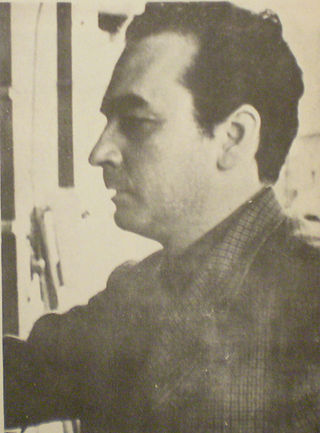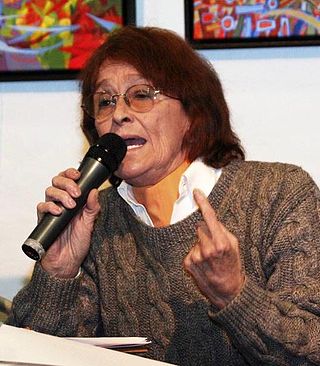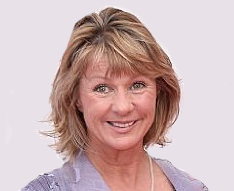
Adolfo Pérez Esquivel is an Argentine activist, community organizer, painter, writer and sculptor. He was the recipient of the 1980 Nobel Peace Prize for his opposition to Argentina's last civil-military dictatorship (1976–1983), during which he was detained, tortured, and held without trial for 14 months. He also received, among other distinctions, the Pacem in Terris Award.

Jorge Rafael Videla was an Argentine military officer and dictator who was the 42nd President of Argentina and as well as the 1st President of the National Reorganisation Process from 1976 to 1981. His rule, which was during the time of Operation Condor, was among the most infamous in Latin America during the Cold War due to its high level of human rights abuses and severe economic mismanagement.

Mairead Maguire, also known as Mairead Corrigan Maguire and formerly as Mairéad Corrigan, is a peace activist from Northern Ireland. She co-founded, with Betty Williams and Ciaran McKeown, the Women for Peace, which later became the Community for Peace People, an organization dedicated to encouraging a peaceful resolution of the Troubles in Northern Ireland. Maguire and Williams were awarded the 1976 Nobel Peace Prize.

The Mothers of Plaza de Mayo is an Argentine human rights association formed in response to the National Reorganization Process, the military dictatorship by Jorge Rafael Videla, with the goal of finding the desaparecidos, initially, and then determining the culprits of crimes against humanity to promote their trial and sentencing.
Pietro Ameglio is a Uruguayan-born Mexican civil rights and peace activist known for his advocacy of nonviolence and efforts to promote peace and anti-militarism in Mexico.
Beccar is a town located 17 km (11 mi) north of the Buenos Aires metropolitan area in the Buenos Aires Province, Argentina. It is part of the partido of San Isidro in Gran Buenos Aires. It is situated close to the historic town of San Isidro and it is characterized by tree lined streets and plazas, red tiled roofed style chalets, high-rise apartment buildings that line the Avenida Centenario zone and by being close to the coast of Rio de la Plata river and yacht clubs. Nearby there is a large shanty town (Villa La Cava). Beccar is served by a 10-minute walk to scenic Tren de la Costa light rail line at Punta Chica station and the commuter railway at Beccar station with easy access to Buenos Aires city centre and the weekend retreat of the Village of Tigre.
The Man of Peace is an award conceptualized in 1999 by the annual World Summit of Nobel Peace Laureates in Rome. The purpose of the award is to recognize individuals who "from personalities from the world of culture and entertainment who have stood up for human rights and for the spread of the principles of Peace and Solidarity in the world, made an outstanding contribution to international social justice and peace".
On 10 November 1998, the United Nations General Assembly proclaimed the first decade of the 21st century and the third millennium, the years 2001 to 2010, as the International Decade for the Promotion of a Culture of Peace and Non-Violence for the Children of the World.
Hildegard Goss-Mayr is an Austrian nonviolent activist and Christian theologian.
The International Salon for Peace Initiatives is organized in the framework of the International Decade for the Promotion of a Culture of Peace and Non-Violence for the Children of the World (2001–2010) declared by the United Nations in 1998. Organized by the French Coalition for the Decade, it has been taken place in Paris every two years since 2004.

Roberto M. Cossa was an Argentine playwright and theatre director.

Alcira Susana Argumedo was an Argentine sociologist, academic and was member of the Argentine Chamber of Deputies. She was nominated as a candidate for president on the Proyecto Sur ticket for the 2011 general elections.

Dawn Engle is the co-founder and former executive director of the non-profit PeaceJam Foundation.
Jean Goss was a French nonviolent activist.
Servicio Paz y Justicia is a Human Rights Non Governmental Organisation in Latin America, founded in 1974. It is a Christian based and nonviolent organization, and is committed for the defense of political prisoners in the different South American dictatorships during the Dirty War in the 1970–80s.

The World Summit of Nobel Peace Laureates was initiated by Mikhail Gorbachev in the 1990s, as a forum in which the Nobel Peace Laureates and the Peace Laureate Organizations could come together to address global issues with a view to encourage and support peace and human well-being in the world. Its Permanent Secretariat is an independent, non-profit, ECOSOC non-governmental organization, based in Piacenza, operating on a permanent basis. A permanent staff, mainly composed of volunteers, promotes the work of the Nobel Peace Prize Winners and organizes the World Summit of Nobel Peace Laureates on a yearly basis. To date, the Permanent Secretariat has organized 17 Summits, the most recent having been held in February 2017 in the city of Mérida, Mexico.

Luis D'Elía is an Argentine activist and politician who served in the government of Néstor Kirchner. He is the founder and head of the Federation of Land, Housing and Habitat, which has been described as a "violent wing" of the Confederation of Argentine Workers.
PeaceJam is a US-based global youth organization led by Nobel Peace laureates. It was founded by musical artist Ivan Suvanjieff and his wife, the economist Dawn Engle in 1993.









